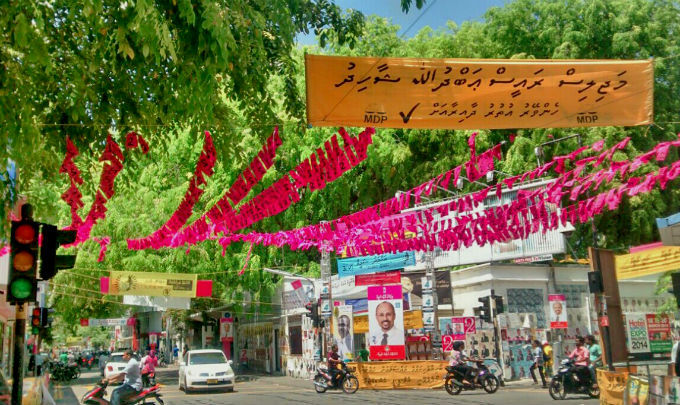Posters and banners banned in public spaces
The housing ministry is removing posters and banners from Malé’s public spaces, in a bid to “ensure public safety and well-being, and keeping parks, streets and public squares, places frequented by the public and children clean and free from litter.”

19 May 2016, 09:00
The housing ministry is removing posters and banners from Malé’s public spaces, in a bid to “ensure public safety and well-being, and keeping parks, streets and public squares, places frequented by the public and children clean and free from litter.”
People who wish to hang up any banners must ask for permission, according to new rules published by the ministry last month.
The “Regulation on putting up advertisements and announcements in streets and public spaces in Malé” band leafleting and says that posters or announcements cannot be put up on electricity boxes, trees or lamp posts.
It sets fines between MVR1000 (US$65) and MVR2000 (US$130) for offenders and a three-month ban for repeat offenders.
Become a member
Get full access to our archive and personalise your experience.
Already a member?
Discussion
No comments yet. Be the first to share your thoughts!
No comments yet. Be the first to join the conversation!
Join the Conversation
Sign in to share your thoughts under an alias and take part in the discussion. Independent journalism thrives on open, respectful debate — your voice matters.




